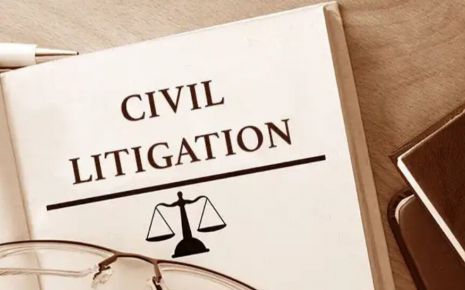Efficacy Question Of The Anti-Defection Law In Current Politics
On the 28th of January 2024, Nitish Kumar's departure from the
Mahagathbandhan alliance and the I.N.D.I.A. bloc ensued, culminating in his
ninth swearing-in ceremony as the chief minister of Bihar subsequent to his
reintegration into the NDA. Kumar, erstwhile a member of the NDA coalition
victorious in the state's 2020 election, had defected in 2022 to join the
JD(U)-RJD Mahagathbandhan as Chief Minister. His reversion to the NDA fold
transpired in less than two years. Citing counsel from various quarters, Kumar
rationalized his volte-face, juxtaposing it with his prior alliance abandonment
in favour of a fresh entente, which failed to materialize satisfactorily,
precipitating his resignation.
The recurrent oscillations in Kumar's political allegiance over the past decade have detrimentally impacted the efficacy of extant anti-defection legislation warrants scrutiny.
The recent developments in Bihar underscore the inadequacies of the anti-defection law, which, while ostensibly designed to deter individual defections that could destabilize democratic processes, fails to address the nuanced dynamics of collective political realignments orchestrated by key figures. Nitish Kumar's strategic maneuvering within the legal confines exemplifies this deficiency, as he deftly sidesteps the repercussions of the law by orchestrating a wholesale alliance shift with all his members intact, thereby circumventing disqualification.
This loophole reveals a critical gap in the legislation's efficacy, exposing vulnerabilities that can be exploited to undermine the electorate's mandate and erode public confidence in democratic institutions. Consequently, the Bihar episode serves as a poignant reminder of the imperative to reassess and fortify the anti-defection law to encompass broader shifts in political alliances, thereby safeguarding the integrity of the democratic process and upholding the sanctity of electoral mandates.
The true goals of the Anti-Defection Law are called into question by its inaction in Nitish Kumar's case. Instead of combating corruption and fostering ethical political practices, the law may unintentionally legitimize such behavior at the highest levels of party leadership. Furthermore, the law appears to have solidified personality-driven politics, rather than weakening the hold of money and power in the political sphere.
The legislation in India favours "popular faces" in politics, allowing leaders to defect with 2/3 party support, but without guaranteeing future party switching. This weakens grassroots leaders and disproportionately benefits big party heads, making grassroots politicians irrelevant.
The majority opinion in the 3-2 ruling stressed that, in using their powers under Schedule X, presiding officers of legislatures act as tribunals that decide cases involving rights and responsibilities that are susceptible to judicial review. The majority further found that paragraph 6, sub-paragraph 2, protects proceedings under the schedule against procedural irregularities rather than claimed illegalities, and that the statutory finality conferred by paragraph 6, sub-paragraph 1 does not exclude judicial review.
The political unrest in Karnataka, Manipur, and Arunachal Pradesh demonstrated how easily any potential weakness may be taken advantage of, in both the speaker's and the legislature's actions. The Speaker of Karnataka has deemed the retiring MPs disqualified and refused to accept their resignations. This was made feasible by the statute, which gives the Speaker of the House the authority to decide on defection grievances without setting a timeframe. The Supreme Court affirmed the Karnataka Speaker's ruling to disqualify the 17 dissident MLAs in Shrimanth Balasaheb Patel & Ors v. Speaker Karnataka Legislative Assembly & Ors (2019).
These incident illustrates an example of the chaotic process of forming governments in Indian states, where political parties frequently use hotel isolation of their MLAs as a means of discouraging horse trading and preserving their majority. The Tenth Schedule, often known as the Anti-Defection Law, was introduced in response to defection, an issue that has persisted since independence.
Democracy is built on the idea of 'government of the people, by the people, and for the people,' prioritizing citizens' interests over politicians' personal interests. Unfortunately, the foundational principle has been distorted due to declining standards of ethical and moral conduct within India's parliamentary democracy. The prevalence of the 'Aaya Ram, Gaya Ram' syndrome and an unending pursuit of 'power and money' have become widespread among our parliamentarians and political parties.
While horse-trading or defections have occurred in previous administrations, the approach is distinctive, employing various means to intimidate, harass, and weaken opposition parties. The party employs questionable tactics to orchestrate defections openly, receiving unwavering support from specific media platforms that portray these actions as strategic masterstrokes, often terming MLA defections as 'chanakya-neeti.' Opposition leaders find themselves declared guilty by the media, influenced by government-backed propaganda. The blatant misuse of power is no longer surprising or shocking, and these tactics are expected to intensify as the next General Election is less than a year away.
The anti-defection statute, was designed to stop Indian politicians' alleged "aaya-ram-gaya-ram" activities. Effective governance was hampered, especially in the 1960s, when defection reached "such epidemic proportions" that numerous state administrations could no longer be regarded as stable. In Kihoto Hollohan v. Zachillhu and Others (1992), the Supreme Court did, however, partially overturn it.
The Constitution (Ninety-First Amendment) Act, 2003 was another amendment that was made to it in 2003. This law states that an elected MLA loses their assembly seat if they decide to leave the party and join a new one. But recent events in Andhra Pradesh, Telangana, and now Maharashtra demonstrate that there are newer means of dodging the law.
Conclusion
The pervasive issue of defections in our political landscape poses a grave threat to the very foundation of democracy. The primary drivers behind these defections, namely the allure of wealth and power, as well as the entrenched nexus between financial influence and coercive tactics, undermine the principles of fair and principled governance. This trend reflects a dearth of politicians committed to upholding values-based politics, thereby perpetuating a cycle of opportunism and moral compromise.
Unless addressed decisively, these detrimental tendencies will continue to erode the integrity of our political and electoral processes. The conduct of politics demands adherence to principles such as fairness, freedom, consistency, equality, integrity, honesty, and trustworthiness. To turn a blind eye to the systemic flaws that precipitate defections and party-switching is tantamount to a deliberate assault on democracy itself. It is incumbent upon political entities and individuals to eschew the politics of expediency and self-interest, instead embracing a moral compass grounded in conviction, courage, and consensus-building for the collective betterment of society.
The primary purpose of the anti-defection law was to prevent members from opportunistically changing parties, a practice that can undermine the democratic process. However, despite penalties for defection, it has failed to prevent such actions, leading to unstable governments. Proposals to amend rather than eliminate the statute are still being made, emphasizing the legality of keeping MPs from switching parties.
To protect democracy, the president (in the case of MPs) or governor (in the case of MLAs) should have the authority to remove members from office, not the speaker or chairman. Voting by a defector to overthrow a government ought to be void. Furthermore, laws should be passed to restrict the size of Councils of Ministers and the number of ministers to no more than 10% of the members of the legislature's popular house.
The recurrent oscillations in Kumar's political allegiance over the past decade have detrimentally impacted the efficacy of extant anti-defection legislation warrants scrutiny.
Embezzlement of the anti-defection law
The Indian Anti-Defection Law, introduced in 1985 through the 52nd Constitutional Amendment during the Rajiv Gandhi administration and enforced in 2002, derives its name from the Latin word "Defectio," signifying the act of abandoning one's stance or affiliation to join an opposing party. Defections have been defined as the "transfer of allegiance by a legislator from one party to another political party or an identifiable political group."The recent developments in Bihar underscore the inadequacies of the anti-defection law, which, while ostensibly designed to deter individual defections that could destabilize democratic processes, fails to address the nuanced dynamics of collective political realignments orchestrated by key figures. Nitish Kumar's strategic maneuvering within the legal confines exemplifies this deficiency, as he deftly sidesteps the repercussions of the law by orchestrating a wholesale alliance shift with all his members intact, thereby circumventing disqualification.
This loophole reveals a critical gap in the legislation's efficacy, exposing vulnerabilities that can be exploited to undermine the electorate's mandate and erode public confidence in democratic institutions. Consequently, the Bihar episode serves as a poignant reminder of the imperative to reassess and fortify the anti-defection law to encompass broader shifts in political alliances, thereby safeguarding the integrity of the democratic process and upholding the sanctity of electoral mandates.
The true goals of the Anti-Defection Law are called into question by its inaction in Nitish Kumar's case. Instead of combating corruption and fostering ethical political practices, the law may unintentionally legitimize such behavior at the highest levels of party leadership. Furthermore, the law appears to have solidified personality-driven politics, rather than weakening the hold of money and power in the political sphere.
The legislation in India favours "popular faces" in politics, allowing leaders to defect with 2/3 party support, but without guaranteeing future party switching. This weakens grassroots leaders and disproportionately benefits big party heads, making grassroots politicians irrelevant.
Turmoil and Controversies over the anti-defection law
In the Prakash Singh versus Union of India case of 1987, the Punjab and Haryana High Court declared that paragraph 7 of Schedule X was unconstitutional because it infringed upon the authority of the Supreme Court and subordinate courts. Nevertheless, Schedule X's legality was affirmed in a later decision made by the Supreme Court's five-judge Constitution bench.The majority opinion in the 3-2 ruling stressed that, in using their powers under Schedule X, presiding officers of legislatures act as tribunals that decide cases involving rights and responsibilities that are susceptible to judicial review. The majority further found that paragraph 6, sub-paragraph 2, protects proceedings under the schedule against procedural irregularities rather than claimed illegalities, and that the statutory finality conferred by paragraph 6, sub-paragraph 1 does not exclude judicial review.
The political unrest in Karnataka, Manipur, and Arunachal Pradesh demonstrated how easily any potential weakness may be taken advantage of, in both the speaker's and the legislature's actions. The Speaker of Karnataka has deemed the retiring MPs disqualified and refused to accept their resignations. This was made feasible by the statute, which gives the Speaker of the House the authority to decide on defection grievances without setting a timeframe. The Supreme Court affirmed the Karnataka Speaker's ruling to disqualify the 17 dissident MLAs in Shrimanth Balasaheb Patel & Ors v. Speaker Karnataka Legislative Assembly & Ors (2019).
These incident illustrates an example of the chaotic process of forming governments in Indian states, where political parties frequently use hotel isolation of their MLAs as a means of discouraging horse trading and preserving their majority. The Tenth Schedule, often known as the Anti-Defection Law, was introduced in response to defection, an issue that has persisted since independence.
Recent Defection Stratagem
Despite the criticism, the political parties have a history of promoting defections and welcoming corrupt leaders into their ranks. Many former opposition leaders were absolved of corruption charges upon joining the party in power, leading to ED and CBI withdrawals.Democracy is built on the idea of 'government of the people, by the people, and for the people,' prioritizing citizens' interests over politicians' personal interests. Unfortunately, the foundational principle has been distorted due to declining standards of ethical and moral conduct within India's parliamentary democracy. The prevalence of the 'Aaya Ram, Gaya Ram' syndrome and an unending pursuit of 'power and money' have become widespread among our parliamentarians and political parties.
While horse-trading or defections have occurred in previous administrations, the approach is distinctive, employing various means to intimidate, harass, and weaken opposition parties. The party employs questionable tactics to orchestrate defections openly, receiving unwavering support from specific media platforms that portray these actions as strategic masterstrokes, often terming MLA defections as 'chanakya-neeti.' Opposition leaders find themselves declared guilty by the media, influenced by government-backed propaganda. The blatant misuse of power is no longer surprising or shocking, and these tactics are expected to intensify as the next General Election is less than a year away.
Legal standing of the anti-defection law
Political defections in India have been a recurring phenomenon since the country gained independence. Early instances involved parties like the Congress Socialist Party and the Jana Congress. The problem escalated in the 1960s, particularly in 1967, following Congress's loss of power in multiple states and a reduced majority in Parliament. The term "Aaya Ram Gaya Ram" originated from Haryana, a region marked by frequent political defections. In the 1980s, Bhajan Lal emulated Gaya Lal, shifting parties strategically to stay in power, and the term 'farmhouse politics' emerged in Haryana, where MLAs sought refuge in farmhouses to prevent defections, akin to the current practice of 'resort' politics.The anti-defection statute, was designed to stop Indian politicians' alleged "aaya-ram-gaya-ram" activities. Effective governance was hampered, especially in the 1960s, when defection reached "such epidemic proportions" that numerous state administrations could no longer be regarded as stable. In Kihoto Hollohan v. Zachillhu and Others (1992), the Supreme Court did, however, partially overturn it.
The Constitution (Ninety-First Amendment) Act, 2003 was another amendment that was made to it in 2003. This law states that an elected MLA loses their assembly seat if they decide to leave the party and join a new one. But recent events in Andhra Pradesh, Telangana, and now Maharashtra demonstrate that there are newer means of dodging the law.
Conclusion
The pervasive issue of defections in our political landscape poses a grave threat to the very foundation of democracy. The primary drivers behind these defections, namely the allure of wealth and power, as well as the entrenched nexus between financial influence and coercive tactics, undermine the principles of fair and principled governance. This trend reflects a dearth of politicians committed to upholding values-based politics, thereby perpetuating a cycle of opportunism and moral compromise.
Unless addressed decisively, these detrimental tendencies will continue to erode the integrity of our political and electoral processes. The conduct of politics demands adherence to principles such as fairness, freedom, consistency, equality, integrity, honesty, and trustworthiness. To turn a blind eye to the systemic flaws that precipitate defections and party-switching is tantamount to a deliberate assault on democracy itself. It is incumbent upon political entities and individuals to eschew the politics of expediency and self-interest, instead embracing a moral compass grounded in conviction, courage, and consensus-building for the collective betterment of society.
The primary purpose of the anti-defection law was to prevent members from opportunistically changing parties, a practice that can undermine the democratic process. However, despite penalties for defection, it has failed to prevent such actions, leading to unstable governments. Proposals to amend rather than eliminate the statute are still being made, emphasizing the legality of keeping MPs from switching parties.
To protect democracy, the president (in the case of MPs) or governor (in the case of MLAs) should have the authority to remove members from office, not the speaker or chairman. Voting by a defector to overthrow a government ought to be void. Furthermore, laws should be passed to restrict the size of Councils of Ministers and the number of ministers to no more than 10% of the members of the legislature's popular house.
Law Article in India
Legal Question & Answers
Lawyers in India - Search By City
LawArticles
How To File For Mutual Divorce In Delhi

How To File For Mutual Divorce In Delhi Mutual Consent Divorce is the Simplest Way to Obtain a D...
Increased Age For Girls Marriage

It is hoped that the Prohibition of Child Marriage (Amendment) Bill, 2021, which intends to inc...
Facade of Social Media

One may very easily get absorbed in the lives of others as one scrolls through a Facebook news ...
Section 482 CrPc - Quashing Of FIR: Guid...

The Inherent power under Section 482 in The Code Of Criminal Procedure, 1973 (37th Chapter of t...
The Uniform Civil Code (UCC) in India: A...

The Uniform Civil Code (UCC) is a concept that proposes the unification of personal laws across...
Role Of Artificial Intelligence In Legal...

Artificial intelligence (AI) is revolutionizing various sectors of the economy, and the legal i...








Please Drop Your Comments